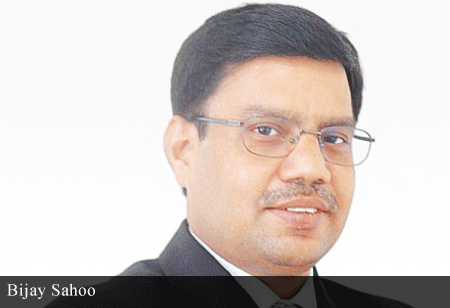Consulting In the Era Of Emerging Technologies
By Bijay Sahoo, Group President - Strategic HR, Chairman's Office & Prashant Deshpande, Head - HR Strategy, Planning & Policy, Reliance Industries Limited

Bijay Sahoo, Group President - Strategic HR, Chairman's Office & Prashant Deshpande, Head - HR Strategy, Planning & Policy, Reliance Industries Limited
The emerging technologies and their impact on the world has become a focal point of conversations across business and policy circles. Out of the 12 disruptive technologies identified by McKinsey 4 years ago, all but one including mobile internet, cloud computing, automation of knowledge work, Internet of Things (IoT), advanced robotics, autonomous vehicles,3D printing, advanced genomics, advanced materials, renewable energy and energy storage are on course to revolutionise the world. Only fracking of petroleum has been a bit stagnant due to slump in oil price. New technologies such as Block chain, AR/VR, reusable rockets and quantum computing have emerged on horizon.
“The organizations will have to navigate their strategies and execution paths through fluid industry boundaries in search of value creation and protection”
These technologies are rapidly making old business models obsolete. The impacts of the emerging technologies on employment are dire. After the early research estimates of around half the jobs being automated, a more nuanced view has emerged that activities across jobs will be automated rather than whole job categories. The emerging technologies are creating opportunities and challenges at anunprecedented scale at all levels: individual, organizational, industry and national. There is an acute need of consultants who will cut through the hype and noise to help clients navigate way forward in this brave new world.
There are opportunities of advisory work at multiple levels:
1. Individual Level: Previously, the schools managed individuals’ education, companies managed their life time careers and governments managed their financial savings and retiral benefits. Now the individuals have wider choices to learn multiple fields through formal education and online MOOCs. The career options have broadened to include formal employment, entrepreneurship and temporary gigs. Personal Finance has become complex with multiple investment avenues across diverse asset classes. Given the need for unadulterated advice for large number of individuals across life spans, completely new models of advisory services are needed. This will require large scale personalization through smart algorithms, conversation alinter faces like intelligent chatbots, curated social community like support and above all wise personal consultants either human, machine or blended.
2. Organizational Level: The organizations will have to navigate their strategies and execution paths through fluid industry boundaries in search of value creation and protection. Google has raised the bar for consultants since information arbitrage has reduced. Now in the world of AI, the information processing arbitrage will also reduce. The contextual understanding, creative problem solving and sensitive change management will be the key differentiators of successful consultants. Hence, companies are increasingly mixing externa l consultants with in-house consulting teams with contextual understanding. At Reliance, we developed the strategic HR team as a centre of excellence to develop intelligence on emerging technology trends and skills. By taking a super set of Mc Kinsey’s list of disruptive technologies, WEF’s list of technologies and MIT Technology Reviews Annual List of emerging technologies, we arrived at a list of 16 emerging technologies. On a regular basis we research into the emerging trends, economic impact, key players and talent across each of the technologies. Depending on the evolving business requirements, we work with top leadership and the leadership of each business to identify specific emerging technology skills relevant across industries. The continuous sense-making of the subject matter and relationship building with expert and entrepreneurial talent helps us acquire emerging technology talent instantaneously basis while providing advisory support in talent acquisition/acqui-hiring assignments. This is an illustration of how an internal team can develop strong consulting capabilities with a focus on emerging technologies.
3. Industry Level: The whole industries and conventional business models prevailing in it are challenged e.g. traditional telcos being challenged by Over-The-Top (OTT) services, banks challenged by Fintech. Hence, the industries through industry associations and collaborative bodies of industry standards need to work together to redefine them selves e.g. Banks globally are coming together to develop standards basedon Block chain. They need advisory support.
4. National, State and City Level: The entire nations, states and cities need to carve out their niches and ensure competitiveness in the emerging technologies. They need to attract best talent for the emerging technologies. E.g. after having based its growth on manufacturing, China is moving to a phase of R&D led high tech growth. In India, a healthy competition is being promoted amongstates and cities on the development parameters. National, state and city administrators need advisory support in leveraging emerging technologies and creating enabling policies which can make their respective national, city, state economies gain competitive edge. The intelligent knowledge economy powered by emerging technologies will bring about a sea change in the role of a consultant and make consulting a pervasive aspect of daily life. Are consultants ready for this new world?


